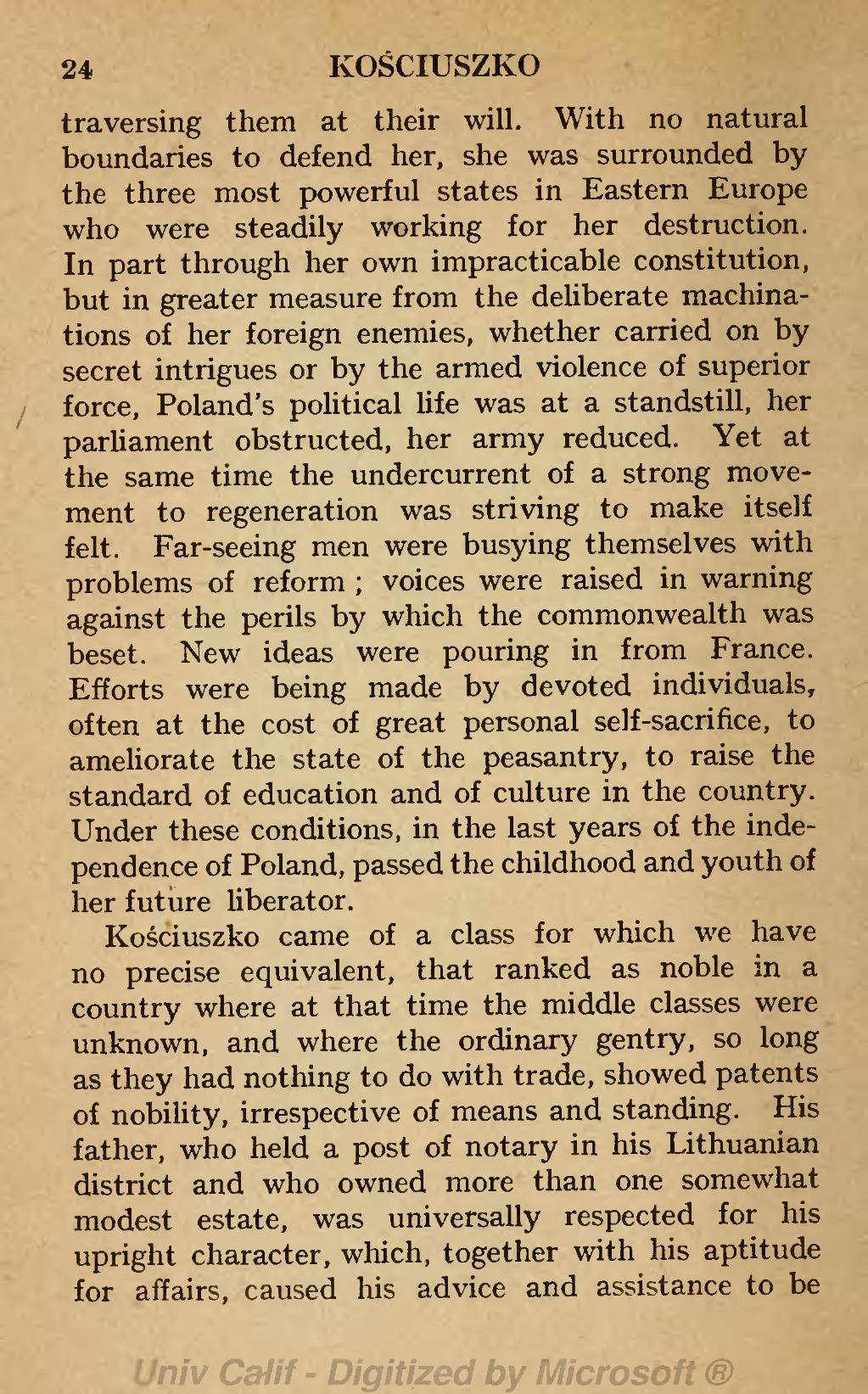traversing them at their will. With no natural boundaries to defend her, she was surrounded by the three most powerful states in Eastern Europe who were steadily working for her destruction. In part through her own impracticable constitution, but in greater measure from the deliberate machinations of her foreign enemies, whether carried on by secret intrigues or by the armed violence of superior force, Poland's political life was at a standstill, her parliament obstructed, her army reduced. Yet at the same time the undercurrent of a strong movement to regeneration was striving to make itself felt. Far-seeing men were busying themselves with problems of reform; voices were raised in warning against the perils by which the commonwealth was beset. New ideas were pouring in from France. Efforts were being made by devoted individuals, often at the cost of great personal self-sacrifice, to ameliorate the state of the peasantry, to raise the standard of education and of culture in the country. Under these conditions, in the last years of the independence of Poland, passed the childhood and youth of her future liberator.
Kościuszko came of a class for which we have no precise equivalent, that ranked as noble in a country where at that time the middle classes were unknown, and where the ordinary gentry, so long as they had nothing to do with trade, showed patents of nobility, irrespective of means and standing. His father, who held a post of notary in his Lithuanian district and who owned more than one somewhat modest estate, was universally respected for his upright character, which, together with his aptitude for affairs, caused his advice and assistance to be
